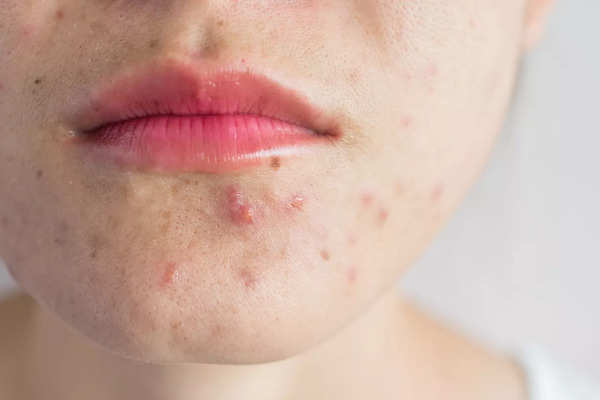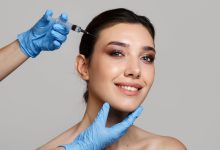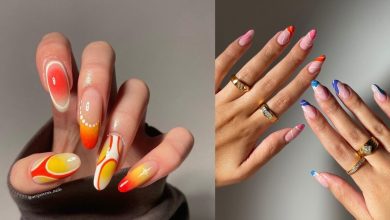Myth or reality: Does eating junk food cause pimples?

The relationship between diet and skin health, particularly the development of acne, has been a subject of debate for decades. One of the most common beliefs is that eating junk food leads to pimples. This idea is deeply ingrained in popular culture, but is it backed by scientific evidence? Or is it just a myth that has persisted over time? In this article, we will explore the connection between junk food and acne, dissecting the science behind the claim to determine whether it’s a myth or reality.
The origins of the myth
The belief that junk food causes pimples likely stems from anecdotal observations and the association of certain foods with an unhealthy lifestyle.Chocolate, greasy foods like pizza and French fries, and sugary treats are often blamed for breakouts, especially among teenagers. The idea is that consuming these foods leads to oily skin, clogged pores, and ultimately, pimples. But does this perception hold up under scientific scrutiny?
Understanding acne: A complex condition
Acne is a multifactorial skin condition, meaning it results from a combination of factors rather than a single cause. These factors include:
Hormonal changes: Hormones, particularly androgens, increase the production of sebum, an oily substance that can clog pores and lead to acne.
Genetics: Some people are more genetically predisposed to acne.
Bacteria: The bacterium Propionibacterium acnes (P. acnes) naturally resides on the skin and can contribute to inflammation and acne when it proliferates in clogged pores.
Inflammation: Inflammatory responses in the skin can exacerbate acne.
Diet: While not a direct cause, certain dietary choices may influence acne severity in some individuals.
Junk food and acne: The Scientific Perspective
When examining the link between junk food and acne, it’s essential to consider the broader category of diet and how specific components might affect the skin.
High Glycemic Index (GI) Foods
Junk foods, such as sugary snacks, soft drinks, and white bread, often have a high glycemic index. The glycemic index measures how quickly a food raises blood sugar levels after consumption. High-GI foods cause a rapid spike in blood sugar, leading to increased insulin levels. Elevated insulin can trigger a cascade of hormonal responses, including increased androgen production and the stimulation of sebum production. Excess sebum can clog pores, creating an environment conducive to acne development.
Several studies have supported this link between high-GI diets and acne. For example, research published in the Journal of the American Academy of Dermatology found that people who consumed a low-glycemic diet experienced significant improvements in acne severity compared to those who continued eating a high-GI diet. The reduction in acne was attributed to the decreased insulin levels and reduced sebum production associated with a low-GI diet.
Dairy products
Dairy products, particularly skim milk, have also been implicated in acne development. The exact mechanism is not entirely understood, but it is believed that hormones in milk or the way dairy affects insulin and other growth factors may play a role. Studies have shown that individuals who consume more dairy products are more likely to experience acne, particularly during adolescence.
However, it’s important to note that the relationship between dairy and acne is not universal. Some people may be more sensitive to dairy than others, and not everyone who consumes dairy will develop acne. Fatty and greasy foods
Fatty and greasy foods
Greasy foods, like pizza, French fries, and fried chicken, are often blamed for causing pimples. The assumption is that the oil from these foods can increase skin oiliness and lead to clogged pores. However, the oil from food doesn’t directly translate to oil production on the skin. Instead, the consumption of fatty foods might influence acne indirectly by contributing to overall inflammation in the body.
A diet high in unhealthy fats, particularly trans fats and saturated fats, can promote systemic inflammation, which may exacerbate acne in some individuals. However, the evidence linking greasy foods to acne is less clear-cut compared to high-GI foods and dairy.
5 Essential oils everyone must have for pain relief and overall health
Junk food and skin health: Beyond acne
While the connection between junk food and acne is still being explored, it’s essential to consider the broader impact of junk food on skin health. Diets high in processed foods, sugars, and unhealthy fats can lead to various health issues, including obesity, cardiovascular disease, and metabolic disorders. These conditions can indirectly affect skin health, as they can contribute to inflammation, hormonal imbalances, and oxidative stress, all of which can impact the skin’s appearance and function.
Moreover, a diet lacking in essential nutrients like vitamins, minerals, and antioxidants can impair the skin’s ability to repair itself and fend off environmental damage. For example, a deficiency in vitamin A can lead to dry, flaky skin, while insufficient vitamin C can impair collagen production, leading to premature aging.
The role of a balanced diet
Given the complexities of acne and skin health, it’s clear that no single food or dietary component can be solely responsible for causing or preventing acne. Instead, a balanced diet rich in whole foods, including fruits, vegetables, whole grains, lean proteins, and healthy fats, is the best approach to supporting overall skin health.
A balanced diet provides the essential nutrients needed for skin repair, reduces inflammation, and helps regulate hormones. Staying hydrated by drinking plenty of water is also crucial, as proper hydration supports skin elasticity and prevents dryness, which can contribute to acne.
Myth or reality?
So, does eating junk food cause pimples? The answer lies somewhere in between myth and reality. While junk food is not the sole cause of acne, certain components of junk food—such as high-GI ingredients, dairy, and unhealthy fats—can contribute to acne in susceptible individuals. However, acne is a complex condition with multiple contributing factors, and diet is just one piece of the puzzle.
For those concerned about acne, it’s essential to focus on overall dietary habits rather than eliminating specific foods. A diet rich in whole, nutrient-dense foods, combined with proper skincare and a healthy lifestyle, is the best strategy for maintaining clear, healthy skin. While indulging in junk food occasionally is unlikely to cause a significant breakout, moderation and balance are key to supporting long-term skin health.
Source: times of india
Related Posts
- 5 foods you must have if want Korean Glass Skin
- I Asked the Coolest People I Know: What Makes an It-Girl Lip Balm?
- 7 hairstyles for women popular in 2025 weddings
- 12 Coconut Perfumes That Smell Like an Expensive Vacation (and Not Sunscreen)
- The 6 Hats Everyone Will Be Wearing Instead of Bucket Hats This Summer





